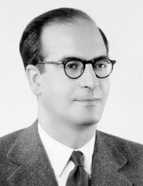

The genesis and evolution of his historical thinking can thus be understood in relation to the cultural and political interests of the family and social environment in which he grew up, in relation to his training, at the Faculty of Letters in Lisbon, and as a response to the different events he lived through, and which he tried to understand through different criteria and precise analyses, distinguishing long-term, medium-term and short-term factors, and the human response to time and place. These were his guiding principles for historical understanding, in line with the revisions of Marc Bloch and Lucien Febvre, later followed by Fernand Braudel. These were the criteria of his own intellectual career which he adopted as necessary aspects of his thinking, to which he added the realism and clarity of explanation of English historiography which he also cultivated early on, the integration of technological questions into a scientific and sociological vision, and studies of the market, which caused him to reject, in the name of History, both the ideological responses which try to take in everything but which fail to respond with precision and rigour to a given problem, and the immutable explanations of material or structural determinism in which the time and the method and human intervention play no part.
Thus he rejected the primacy of the general principles dear to António Sérgio, with their “Minervan” immutability, as inadequate as a tool for the historian. In this regard, defending the capacity for personal decisions and responsibility, he quickly rejected the immutable and deterministic ideas of Buddhism. His criticism of António Sérgio’s approach to historical interpretation aimed to contest the primacy of reason, to the detriment of seeing historical reality, particularly with regard to the revolution of 1383/85, and it was fully developed in his paper “The meaning and evolution of polemics of António Sérgio. The ideology of reason (1912-1930)”, published in the Revista de História das Ideias, in Coimbra, in 1983. JBM drew attention to the complexity of reality, to the need to define the conjuncture, especially for phenomena as complex as wars. He also insisted on the diversity of factors and perspectives by which one should seek to understand the Discoveries, citing, against Sérgio, authors he admired, such as Joaquim Bensaúde, Carlos Malheiro Dias, Luciano Pereira da Silva, Duarte Leite and Jaime Cortesão. For similar reasons he praised Paulo Merêa, Lúcio d’Azevedo, Leite de Vasconcelos and Carolina Michaëlis de Vasconcelos.
